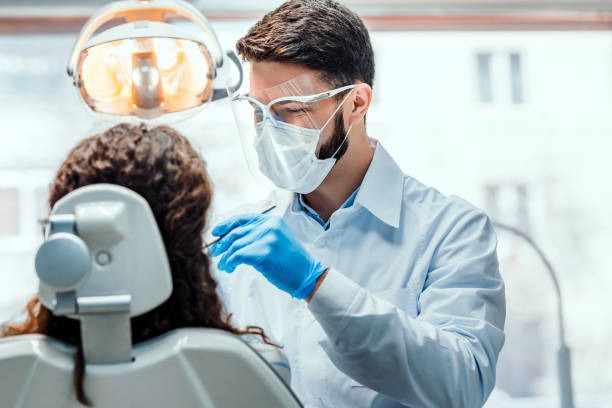Toothaches and dental problems can strike without warning. Whether you’re at work, home, or on vacation, dental issues don’t always follow a 9-to-5 schedule. Sometimes, you need immediate dental care—more urgent than waiting days for a regular check-up, but not quite severe enough for an emergency room visit. This is where urgent care dentists come in handy.
Knowing the right time to seek help from them can prevent complications and relieve pain much faster. So, how do you know when a dental issue demands immediate attention? Let’s break down the most common signs and situations where visiting an urgent care dentist is the smart move.
What Makes a Dental Issue an Urgent One?
Dental issues range from mild inconvenience to full-blown emergencies. While not every dental mishap needs a trip to urgent care, certain signs indicate that waiting could make things worse. An “urgent” dental problem needs quick, professional help to stop the pain, prevent further damage, or protect your long-term dental health. Think of issues like severe toothaches, infections, or sudden injuries to your mouth.
Common Urgent Dental Problems
-
Severe and persistent tooth pain
-
Cracked, chipped, or knocked-out teeth
-
Swelling in the jaw or mouth
-
Uncontrollable bleeding from gums or mouth
-
Abscesses and infections
-
Lost dental fillings or crowns
Persistent Toothache That Won’t Go Away
It’s common to brush off mild tooth pain, hoping it’ll disappear after a while. Sometimes, it’s just sensitivity after eating something cold or sweet, but a toothache that sticks around or gets worse should never be ignored. If your pain wakes you up at night, radiates to your ear or jaw, or isn’t helped by pain relievers, it’s time to seek urgent care. Prolonged discomfort can hint at something like an infection or nerve damage, which needs prompt treatment.
What You Can Do Before Your Visit
-
Rinse your mouth with warm water
-
Use dental floss to remove trapped food particles
-
Apply a cold compress to the cheek if swelling appears
-
Avoid applying aspirin directly to the gums—it can burn tissue
Swelling or An Abscess in Your Mouth
Swelling in the face, jaw, or gums is a red flag you shouldn’t ignore. It can mean you have an abscess—an infection that needs professional attention ASAP. Signs of infection include a pus-filled bump, fever, difficulty opening your mouth, or bad taste. Leaving an abscess untreated can lead to more serious health issues, even affecting your heart in rare cases. So, if you spot swelling, fever, or find swallowing difficult, don’t wait to get checked out.
When Swelling Means an Emergency
-
Fever along with swelling
-
Trouble breathing or swallowing
-
Swelling that spreads down the neck or to the eye
Broken, Chipped, or Knocked-Out Teeth
Accidents happen, whether you’re playing sports, biting into something hard, or slipping and falling. When a tooth gets chipped, cracked, or completely knocked out, acting fast can make all the difference. For a chipped or cracked tooth, rinse your mouth with warm water and try to save any broken pieces. For a knocked-out tooth, hold it by the crown, gently rinse off dirt, and try to place it back in the socket. If that’s not possible, keep it in milk or saliva. Get to an urgent care dentist within an hour for the best shot at saving the tooth.
First Steps to Take
-
Rinse mouth and tooth with water (don’t scrub it)
-
If possible, reposition the tooth in the socket
-
If not, store it in milk or saliva—never water alone
-
See urgent dental care immediately
Bleeding That Won’t Stop
Bleeding gums can result from brushing too hard or minor injury, but if you experience persistent, heavy bleeding after a dental procedure or injury, it’s a warning sign. Continuous bleeding could point to serious issues beneath the surface and should be checked by an urgent care dentist. If the bleeding doesn’t stop after 10 minutes of firm pressure, don’t wait—get professional help right away.
Intense Sensitivity to Hot or Cold
It’s not unusual to feel mild sensitivity to hot or cold foods (think ice cream or hot soup). But when the sensitivity becomes painful, lingers, or gets worse, it could hint at a deeper problem like a cracked tooth, worn filling, or infection. If pain strikes whenever you eat or drink something hot or cold—and especially if it sticks around long after—you’ll want to see a professional sooner rather than later.
Lost Fillings, Crowns, or Dental Devices
Fillings and crowns are meant to help protect your teeth, but what happens if one suddenly pops out during dinner or while brushing your teeth? While a lost filling or crown might not always hurt at first, it leaves the tooth vulnerable to infection and decay. Plus, eating and drinking might become painful, and a sharp edge could irritate your tongue. That’s when timely dental help matters.
If something like this happens, save the crown or filling if possible. Avoid chewing on that side of your mouth and avoid exposing the tooth to very hot, cold, or sweet foods until a dentist can repair it.
When to Call for Immediate Repair
-
Sharp pain after losing a filling or crown
-
Swelling or bleeding in the affected area
-
The tooth feels loose or jagged
Accidents and Dental Trauma
Trauma to the mouth and face—such as from sports, a car accident, or a hard fall—should always be evaluated by a dental professional. Even if everything looks okay, invisible cracks or damage beneath the gum line can create problems later. If you have visible injuries, feel pain when biting, or your teeth have changed position after trauma, don’t delay an urgent care visit.
While waiting to see a dentist, try to control bleeding by applying gentle pressure with gauze. An ice pack can reduce swelling and discomfort, but avoid applying ice directly to the skin indoors.
Sudden Pain That Comes and Goes
Intermittent but severe pain is another reason to seek urgent dental attention. Pain that seems to come and go, strikes suddenly, and feels intense could be a sign of a cracked tooth or underlying infection. Sometimes, pain seems to disappear only to return with a vengeance. Ignoring these episodes can lead to further complications down the road. Getting an assessment and possible x-ray from a dental professional puts you back in control and avoids future surprises.
Understanding Less Obvious Urgent Dental Signs
-
Vague pain when biting down
-
Small, recurring pimples on the gums
-
Bad taste or persistent bad breath despite brushing
Relying on Trusted Dental Experts
When you’re looking for timely care for dental pain, infection, or trauma, you want to know you’re in good hands. Patients often search for a trusted Philadelphia dentist not just for routine visits but because they’re reliable in urgent situations, providing expert care when you need it most.
Having a Local Dental Professional Matters
During a dental scare, proximity matters. Being able to see a local dentist means you’re never far from professional help, even if a problem strikes after traditional business hours or during the weekend. Local dental professionals understand community needs and often have flexible hours for emergencies.
When to Prefer Urgent Dental Care Over the Emergency Room
It’s easy to panic when you have dental pain and aren’t sure where to go. The emergency room is best for life-threatening issues—like uncontrolled bleeding, severe facial trauma, or airway obstruction. However, for most dental injuries, an urgent care dentist is better equipped to provide the right care, often faster and at a lower cost. If you’re ever unsure, call ahead for advice so you can get the best care for your situation.
If you live in the area and face a sudden dental crisis, finding a Philadelphia urgent care dentist ensures you won’t have to travel far while in pain. Philadelphia’s dental professionals are equipped to handle all kinds of urgent needs, from broken teeth to painful infections, so that you can get relief quickly and efficiently.
Final Thoughts
Your mouth is one of the most sensitive parts of your body, filled with tissues and nerves that can be easily irritated or infected. That’s why you shouldn’t ignore pain, swelling, bleeding, or injuries in your mouth or jaw. Even if you’re tempted to wait it out, remember that dental problems usually don’t resolve themselves without care. They often get worse with time, leading to more discomfort, bigger bills, and sometimes even issues with your overall health.








